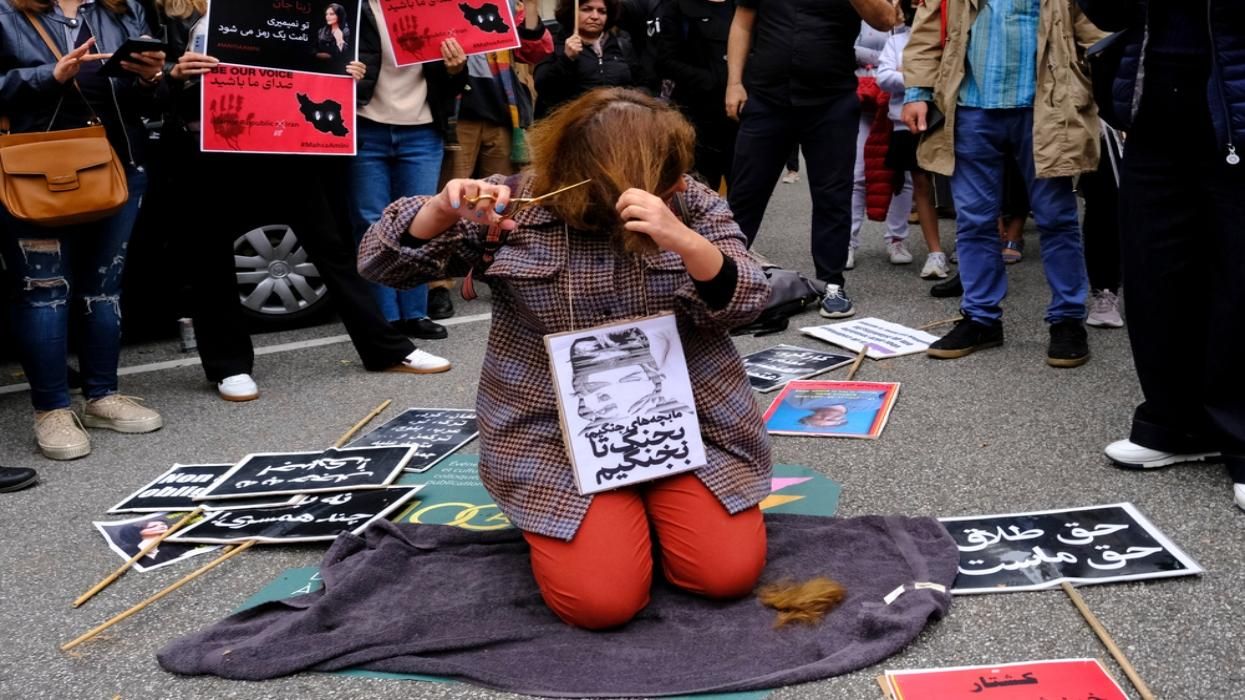After months of protests sparked by the death of a young Iranian woman who was detained for improperly wearing a hijab, Iranian officials may abolish the country's morality police.
At a news conference Saturday via The New York Times, Attorney General Mohammad Javad Montazeri told reporters that the morality police “was abolished by the same authorities who installed it."
"Morality police have nothing to do with the judiciary and have been abolished," he said.
The Iranian government has yet to confirm or deny the decision. State news channels in Iran report conflicting narratives, some saying that the government will continue to enforce hijab laws, while others claim Montazeri's remarks were taken out of context.
When asked about abolishing the morality police at a news conference in Belgrade, Serbia, Iran's foreign minister Hossein Amir Abdollahian gave an equally unclear answer, but said: “In Iran, everything is moving forward well in the framework of democracy and freedom.”
Iranian officials are currently reviewing a law that would require women to cover their hair and bodies in loose clothing. With the decision expected within two weeks, Montazeri added that law enforcement would still uphold “social behavior" restrictions going forward.
The morality police operate under Iran's standard police force, and are tasked with enforcing the strict social rules of the Islamic Republic. This includes dress codes for women regarding hijab requirements in public.
The division has been the subject of global scrutiny following the death of 22-year-old Masha Amini, who died in police custody after being detained for incorrectly wearing her hijab. Amini died of cardiac arrest, despite having no preexisting conditions.
Several protests erupted across the country following the news of Amini's death, with hundreds of women cutting their hair in solidarity. The demonstrations have shed global attention on the human rights abuses in Iranian prisons, and the government's violent response to peaceful protestors.
Per one incident in Zahedan, the capital of Sistan and Baluchistan, Iranian security forces open-fired on crowds. They killed 80 people, children included, with September 30 since being named "Bloody Friday." The United States government has since issued sanctions on the country for their “censorship, surveillance, and malicious activity against the Iranian people.”
Several Iranian activists have noted that abolishing the morality police, while necessary, is not enough. Some believe it is a distraction by the government to divert attention to the demands of the protestors, who are fighting to end the Islamic Republic's rule.
Gissou Nia, lawyer and head of the Iran Human Rights Documentation Center, told The Times that simply abolishing the morality police will not solve the nation's ongoing turmoil.
“The bottom line is that the protests are now about challenging the entirety of the system," she said. "And the extreme gender discriminatory laws that mandate compulsory hijab and restrictions on women’s rights to marriage, divorce, custody and inheritance are all still in place.”
- Iran Performs Second Protest-Related Execution - Advocate Channel ›
- Iranian Woman Participates in International Chess Tournament Without Mandatory Hijab - Advocate Channel ›
- Tuesday's Top Stories: Americans Freed From Iran, Fed Rate Hikes, UN General Assembly ›
- Iran Sentences Daughter of Former President to Five Years in Prison ›


















































